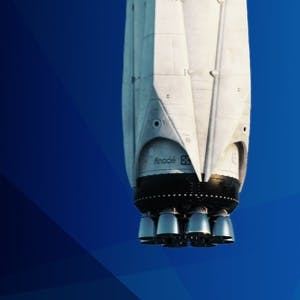- Home
- All updates
- EDGE Insights
- Industries
- Company Search
- My Watchlists (Beta)
All Updates
Orbital Reef space station completes NASA review; advances to design phase
N-able acquires Adlumin for USD 266 million to strengthen cybersecurity offerings
Bitsight acquires Cybersixgill for USD 115 million to enhance threat intelligence capabilities
Snowflake acquires Datavolo to enhance data integration capabilities for undisclosed sum
Snowflake acquires Datavolo to enhance data integration capabilities for undisclosed sum
Microsoft launches Copilot Actions for workplace automation
Almanac acquires Gro Intelligence's IP assets for undisclosed sum
Aduro Clean Technologies partners with Zeton to build hydrochemolytic pilot plant
Oishii raises USD 16 million in Series B funding from Resilience Reserve
GrowUp Farms appoints Mike Hedges as CEO
Rise Up acquires Yunoo and expands LMS monetization capabilities

Space Travel and Exploration Tech
Orbital Reef space station completes NASA review; advances to design phase
-
The Orbital Reef team, led by partners Sierra Space and Blue Origin, successfully completed the system definition review (SDR) with NASA for the Orbital Reef commercial space station, allowing it to move to the design phase of the project.
-
The SDR, which is an important milestone to establish the functional baseline for the Orbital Reef system, demonstrated that the architecture of the space station is workable and attainable and confirmed that it is on schedule to go forward into the design phase.
-
The station is expected to be operational by 2027 and will serve research, industrial, international, and commercial customers. Other entities in the Orbital Reef team include Amazon Supply Chain, Amazon Web Services, Arizona State University, Boeing, Genesis Engineering Solutions, and Redwire Space.
<ul><li> AnalystQuickTake: In December 2021, NASA awarded over USD 415 million to Blue Origin (USD 130 million), Nanoracks (USD 160 million), and Northrop Grumman (USD 126 million) to develop privately owned and operated commercial space stations in order to tap private companies to enable a smooth transition from the International Space Station (ISS), which is potentially expected to shut down at the end of this decade. Jeff Bezos’ Blue Origin will support Orbital Reef through large-diameter modules and use its New Glenn heavy-lift rocket to launch components into orbit, while Sierra Space will build expandable Large Integrated Flexible Environment (LIFE) modules and may also operate flights to the space station. Boeing would also operate spaceflights in addition to overseeing operations and maintenance. Jeff Bezos’ Amazon also partnered to provide supply-chain logistics and Amazon Web Services.
Contact us
By using this site, you agree to allow SPEEDA Edge and our partners to use cookies for analytics and personalization. Visit our privacy policy for more information about our data collection practices.